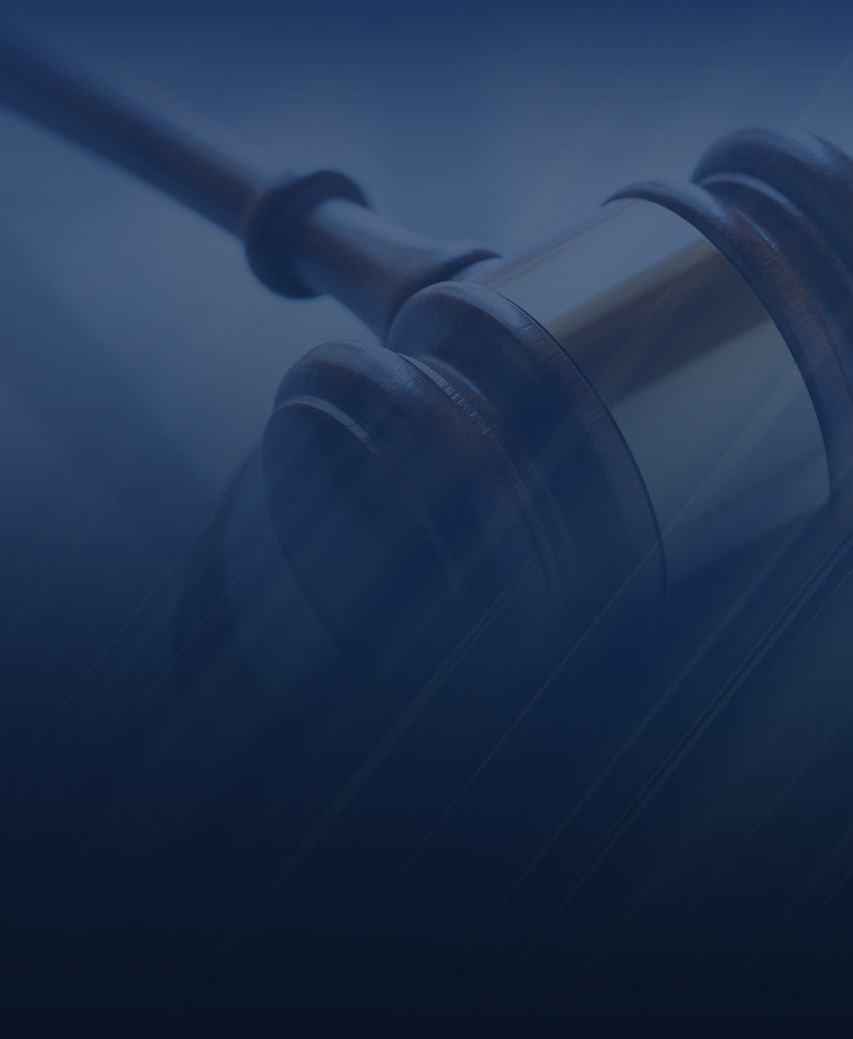
Over $1 Billion Won for Our clients
Helping Injured Victims Since 1975
Rhode Island Medication Error Attorneys
Injured or Fallen Ill From a Medication Error in RI?
Healthcare providers have a responsibility to be diligent when providing medical care to patients. When they fail to meet this duty, it is considered medical malpractice. One example of medical malpractice is medication errors, which can cause a range of problems for the patient, including overdose.
It’s incredibly easy for a physician to make a careless mistake in prescribing medication, or for a nurse to administer the wrong dose. Administering the wrong medication can lead to tragedy, including the need for life-sustaining interventions.
At Decof, Mega & Quinn, P.C., our Rhode Island medication error lawyer is well-versed in helping those who have suffered harm from medication errors and other forms of medical malpractice. We have a proven track record of success in recovering compensation for those who have been injured through another’s negligence. We will evaluate your case and guide you through the process of recovering compensation for lost wages, medical care, and pain and suffering.
To schedule a free consultation with our team, call (401) 200-4059 or contact us online today!
What Is a Medication Error?
A medication error is a preventable event that may cause or lead to inappropriate medication use or patient harm while the medication is in the control of the healthcare professional, patient, or consumer. This can happen at any stage of the medication process, including prescribing, transcribing, dispensing, administering, or monitoring.
Doctors can make many types of medication errors, including:
- Prescribing the wrong medication
- Administering the wrong medication
- Prescribing the wrong dose
- Mislabeling the medication
- Prescribing medication the patient is allergic to, or failing to screen for the patient’s allergies
- Delivering medication that interacts negatively with the patient’s current medicines
- Failing to warn the patient about the possible side effects of their medication
Medication errors can occur due to various factors, including miscommunication, illegible handwriting on prescriptions, similar drug names or packaging, incorrect dosages, drug interactions, lack of proper patient information, or inadequate training of healthcare professionals. These errors can have serious consequences, ranging from mild discomfort to severe harm or even death.
According to a study by researchers at Johns Hopkins Medicine, more than 250,000 Americans die each year from medical errors, a number only surpassed by heart disease and cancer. Medical error has been defined as an unintended act or one that does not achieve its intended outcome, the failure of a planned action to be completed as intended, the use of a wrong plan to achieve an aim, or a deviation from the process of care that may or may not cause harm to the patient. Indeed, many medical errors do not result in death; however, the above-referenced study focused on lethal errors only. Thus, the annual death toll of 250,000 – an immense figure – underrepresents the occurrence of harmful medical errors in the U.S.
Who Is Liable for Rhode Island Medication Errors?
Liability may fall on one or more parties involved in the medication process. Here's a breakdown:
- Healthcare Provider: The prescribing healthcare provider (such as a doctor or nurse practitioner) may be liable if they prescribe the wrong medication, incorrect dosage, or fail to consider relevant patient factors (such as allergies or drug interactions).
- Pharmacist: Pharmacists can be held liable for medication errors if they dispense the wrong medication or dosage, mislabel the medication, or fail to provide proper counseling to the patient about how to take the medication safely.
- Hospital or Healthcare Facility: If the medication error occurs within a hospital or healthcare facility, the institution may bear liability for inadequate systems or protocols in place to prevent errors, insufficient staffing levels, or failure to properly train staff.
- Manufacturers: In some cases, medication errors may result from defects in the medication itself, such as unclear labeling, packaging issues, or problems with the drug formulation. In such instances, the manufacturer of the medication may be held liable.
- Patients: Patients may also bear some responsibility for medication errors, particularly if they fail to provide accurate information about their medical history, allergies, or other medications they are taking. Non-compliance with medication instructions may also contribute to errors.
- Other Healthcare Professionals: Other healthcare professionals involved in the medication process, such as nurses, pharmacy technicians, or physician assistants, may also be held liable if their actions or omissions contribute to a medication error.
If you or your loved one was a victim of medication errors, our Rhode Island medical malpractice lawyers can help. We can guide you through the process of pursuing justice and recovering compensation for any injuries or illnesses sustained.
How to Protect Yourself from Medication Errors
- Medication Reconciliation: Practice “medication reconciliation” by sharing with your physician the names of all medications that you are taking, medications that you are allergic to or that have caused problems for you in the past, whether you have chronic/serious health problems and if you might become pregnant. Keep an up-to-date list of all your medications, including nonprescription and herbal products, to assist the “medication reconciliation” process.
- Communications: The best defense against medical errors is communication. If you do not understand something that your doctor or pharmacist says, ask for an explanation. Equally important, ask questions of your doctor or pharmacist if you have any concerns related to your treatment/medications.
- Do Not Assume: Treating with the wrong prescription or dosage could cause bodily harm or death. Therefore, always read the label on your prescription package to ensure that you have received the appropriate medication. Do not assume that you will receive the correct prescriptions/dosages from the pharmacy.
- Educate Yourself: Do some independent research of your own. A simple “Google” search can provide you with some information about your medications and your own knowledge of the process may help your physician avoid medical errors in the future.
Frequently Asked Questions About Medication Error Claims
What Should I Do Immediately After Discovering a Medication Error?
If you suspect you have encountered a medication error, it’s important to act quickly to mitigate any potential harm. First, stop taking the medication and consult your healthcare provider or pharmacist immediately to verify the error and seek medical advice on potential side effects or necessary interventions. Keeping a detailed record of the error, including medication packaging, prescriptions, and communication with healthcare providers, can be vital. These records will support any claims made regarding the error, providing clarity and substantiation.
Next, obtain a complete overview of your medical records. This will be crucial if you decide to pursue legal action, as it offers a detailed account of your medical history, treatments, and the potential impact of the error. Consulting with a Rhode Island medication error attorney can provide guidance on the viability of your case and the appropriate steps moving forward, ensuring you understand your rights and options under Rhode Island law.
How Common Are Medication Errors and What Are the Common Causes?
Medication errors are unfortunately common, affecting millions of individuals annually in the United States. These errors can occur at any point in the medication process, often resulting from poor communication among healthcare professionals, misinterpretation of handwritten prescriptions, and similarities in drug names or packaging. In Rhode Island, as with many places, such errors can also stem from a lack of patient-physician communication, leading to incorrect dosage instructions or overlooked allergies.
To decrease the likelihood of medication errors, continuous efforts in enhancing the education and training of healthcare providers are imperative. Furthermore, employing technology like electronic prescribing systems helps mitigate risks associated with human errors, ensuring more accurate and clear medication dispensing and administration. Increasing patient awareness regarding their treatments can also significantly curb the rate of medication errors by reinforcing a collaborative healthcare provider-patient relationship.
Can I File a Claim If There Was No Physical Injury?
In Rhode Island, pursuing a claim for a medication error typically requires demonstration of tangible harm. While the error itself is serious, compensation claims generally necessitate evidence of physical injury or significant adverse effects resulting from the error. If a medication error was identified and rectified before causing harm, it might not be eligible for a claim under medical malpractice laws.
However, if the error led to emotional distress or significant disruption to one’s life or if it created a scenario requiring substantial medical testing or observation to ensure no adverse effects occurred, it’s still possible to pursue a claim. Consulting with a Rhode Island medication error attorney is crucial to evaluate the specifics of the situation, as an experienced attorney can assess whether the circumstances warrant a legal claim and guide you through potential compensation recovery avenues.
What Compensation Can Be Recovered from a Medication Error?
Compensation from medication error claims in Rhode Island can cover a broad spectrum of damages. Victims may seek recovery for direct medical expenses incurred due to the error, including emergency services, hospital stays, and any corrective treatments required. Compensation can also extend to long-term impacts, such as rehabilitation costs or continuous medical monitoring if the error results in ongoing health concerns.
Beyond medical expenses, claims may include damages for lost wages if the error leads to time away from work, either due to recovery or medical appointments. Pain and suffering, which account for physical discomfort and emotional distress, can also be included, highlighting the comprehensive nature of potential claims. The complexity of what can be claimed underscores the importance of consulting with a qualified medication error lawyer to accurately assess potential compensation avenues and ensure all aspects of harm are appropriately addressed.
What Is the Importance of Hiring a Rhode Island Medication Error Lawyer?
Enlisting the services of a medication error lawyer skilled in Rhode Island law is crucial for several reasons. Firstly, the intricacies of state malpractice laws necessitate a comprehensive understanding that only an experienced legal professional can provide. An attorney from a reputable firm, such as Decof, Mega & Quinn, P.C., can help in interpreting and navigating these laws to optimally advocate for your rights.
Additionally, a medication error lawyer can offer critical support in gathering and organizing evidence, building an effective case strategy, and negotiating settlements. They ensure that all legal activities are executed proficiently and that clients remain well-informed throughout the process. Partnering with our Rhode Island medication error attorney at Decof, Mega & Quinn, P.C. not only provides reassurance and expertise but also maximizes the chances of achieving a favorable outcome following a medication error incident.
Our Rhode Island medication error attorneys invite you to contact us at (401) 200-4059 for a free, no-obligation consultation. Get started on your medical malpractice claim today to seek justice.

-
$15 Million Medical Malpractice
-
$10 Million Medical Malpractice
-
$10 Million Medical Malpractice




.2408191350077.png)












